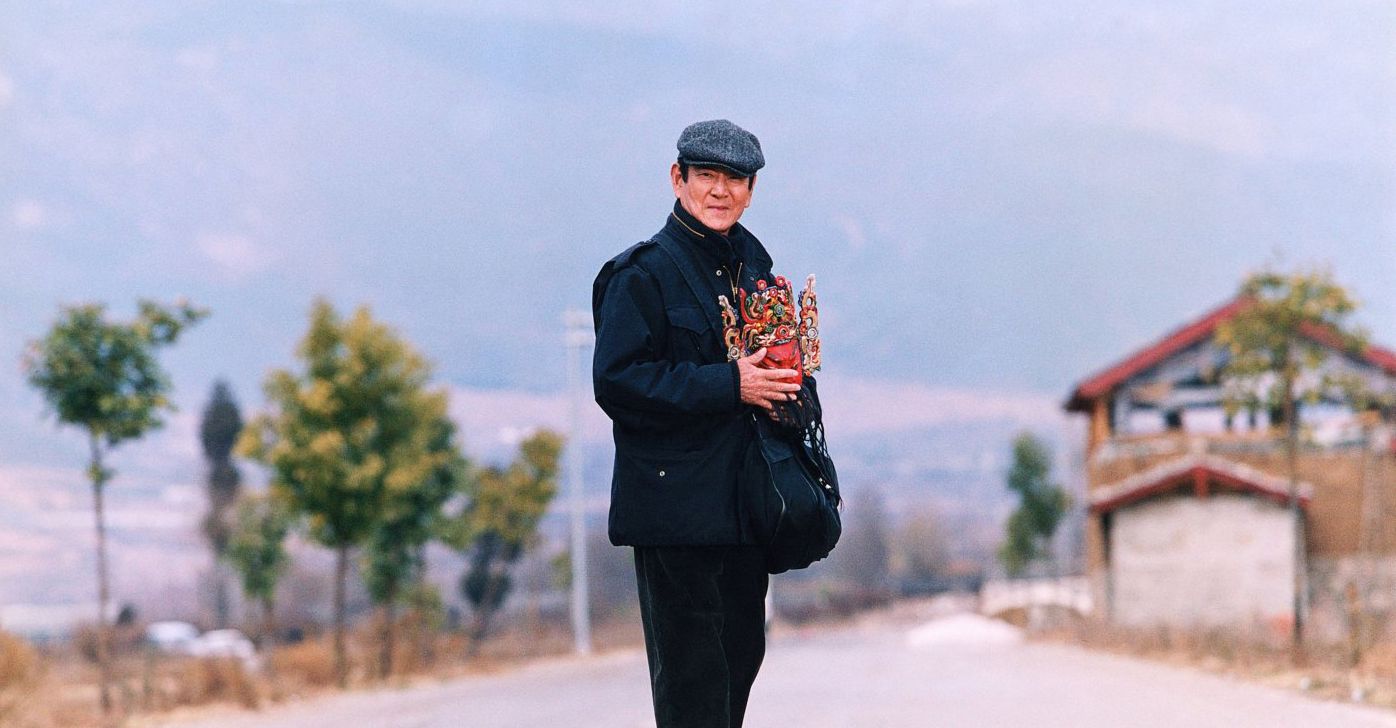By Chlotrudis Independent Film Society
Rating: 4.25 cats
Director: Zhang Yimou
Starring: Ken Takakura | Li Jiamin | Qui Lin | Shinobu Terajima | Wen Jiang

Original language title: Qian li zou dan qi
Country: china, hong_kong, japan
Year: 2006
Running time: 107
IMDB: http://www.imdb.com/title/tt0437447/
Bruce says: “China and Japan have a contentious relationship for hundreds of years, particularly in the years since Japan occupied parts of China and Taiwan in the early 20th century. Diplomatic relationships did not resume until 1972 and attitudes on both sides remained cool until the millennium. On a personal level, relationships are often quite different. Zhang Yimou’s beautiful film RIDING ALONE FOR THOUSANDS OF MILES proves that commonly shared events do bring people together even in the shadows of a disturbing history.
“For those who have an affinity for stories about fathers and sons, RIDING ALONE FOR THOUSANDS OF MILES won’t disappoint. Gou-ichi Takata (Ken Takakura) has not spoken to his son Ken-ichi in a number of years. When his daughter-in-law, Rie (Shinobu Terajima) calls to say his son is in a Tokyo hospital, he rushes there to see him. When Ken-ichi refuses to see his father, Gou-ichi decides to learn more about his son from Rie. He learns his son spent considerable time in China researching folk opera and videotaping performances. One of the most famous of the traditional mask opera singers is Li Jiamin (playing himself) who refused to sing for Ken-ichi’s camera. As a peace offering to his son, Gou-ichi decides to travel to China and capture the singer on film.
“Lingo (Qui Lin) is Gou-ichi’s guide but he is an inadequate translator. This becomes a problem when it is discovered that Li Jiamin is in prison and that delicate diplomacy is a prerequisite for getting permission from the warden and other high officials to film in the prison. So Jasimine (Wen Jiang) is brought into the picture to smooth out the language problems. She is dismayed by the Chinese bureaucracy and recommends the project be stopped. But Gou-ichi is persistent. They finally get permission to
film, but Li Jiamin is too distraught to sing. He is worried about his son who is temporarily orphaned by his prison sentence. Gou-ichi relates all too well to the perils of estrangement; he goes off to a Hunan village to meet the little boy so that he can report on the child’s well-being and put Li Jiamin’s mind at rest. In the village, the Japanese man and the Chinese boy bond.
“Ken Takakura delivers a deliberately restrained performance that suits the story well. It really is his film as much as it is Zhang’s. As on has come to expect from Zhang, the cinematography is exceptional. Some nice touches give the viewer multiple dimensions of China. Leftover from former generations are the military-like prison drills in the prison courtyard. When the boy gets lost in a deep canyon, the entire village bands together and conducts a torchlight search. As Li Jiamin performs his opera, the prisoners in the audience are deeply moved. Themes in the film are universal: the love/hate relationship between father and
son; the delicate interaction between peoples of once-warring nations; and the increasing likelihood of peaceful resolution when more than two generations are involved. On a less pleasant note, the film gets overly sentimental at the end. 4.5 cats”
Michael says: “Zhang Yimou has created a smart, funny and moving film that harkens back to some of his earlier films, most notably, THE STORY OF QI JIU, NOT ONE LESS, and THE ROAD HOME. I skipped this film in the theatre because of a couple of negative reviews, calling the film overly sentimental, and while there is certainly sentiment present, there is also a beautiful story told with simplicity and stubbornness. Gou-ichi is a Japanese man whose daughter-in-law implores him to come see his estranged son, who is ailing in the hospital. When he gets there, his son wants nothing to do with him and refuses to see him. A short time later, Gou-ichi receives another call from his daughter-in-law with the news that his son is dying. To make amends for their estrangement, Gou-ichi travels to China with the intention of filming his son’s favorite folk-opera. While in China, and with the help of a translator named Jasmine, and her friend, Gou-ichi finds himself involved in the struggle of another father and son who are kept apart, this time by forces beyond their control.
“RIDING ALONE is a tale of reconciliation and family. It is also a story of cultural differences and acceptance. I was surprised by the amount of dry humor Zhang employs, and welcomed the return of his stubborn characters who keep moving forward despite every obstacle. While the Japanese cast members are all actors, those from China are all non-actors, following the director’s usual casting style. This one was a pleasant surprise. 4 cats”
